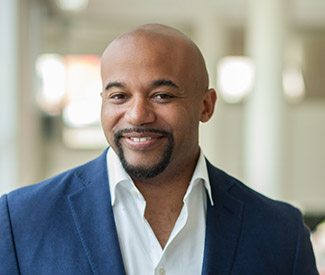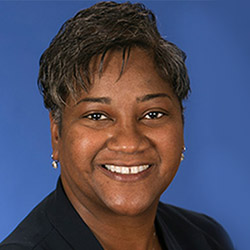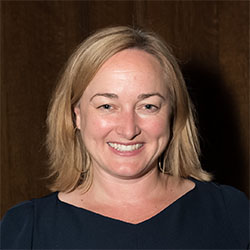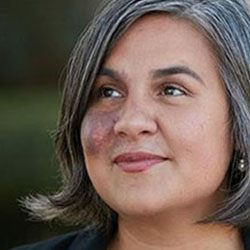
CASE in Point is a podcast from CASE at Duke University’s Fuqua School of Business that dives into the stories and tactics that social impact leaders are using to make the world a better place. In each episode, we talk to executives at social ventures and impact investing firms around topics central to maximizing impact for social good.
apple podcasts android podcast stitcher
Season Two
 Episode 5: Episode 5:
Building a Movement to Drive Systems Change
Bart Houlahan
At CASE, one of the trends that we are constantly talking about is the idea of systems change – addressing the root cause of social problems in order to fundamentally shift the components that are contributing to those problems. On this episode of CASE in Point, Bart Houlahan, the co-founder of B Lab, provides tactical advice about how to engage and build a movement to drive change. |
|
 Episode 4: Episode 4:
Navigating Founder Transitions & Becoming A Systems Change Entrepreneur
Jordan Kassalow
By bringing together governments, corporations and nongovernmental organizations, Jordan Kassalow, founder of VisionSpring and co-founder of EYElliance, is working to change the system and increase access to eyeglasses to people around the world. On this episode of CASE in Point, he gives advice about how to deepen your understanding of the problem you are trying to solve, build trust and lead from behind. |
|
 Episode 3: Episode 3:
Mainstreaming of Impact Investing to Achieve Real Change
Ommeed Sathe
At CASE, we believe that impact investing, the practice of investing for social or environment impact, as well as financial return, is a critical lever for solving social problems. On this episode of CASE in Point, Ommeed Sathe, Vice President of Impact Investments at Prudential Financial, shares his lessons learned from managing $1 billion dollars towards impact and his insights on the opportunities and risks of the mainstreaming of impact investing. |
|
 Episode 2: Episode 2:
Daring to Matter – Jordan Kassalow’s Path to Making a Difference
Jordan Kassalow
One of our favorite things to do at CASE is talk to a number of the experienced and successful social entrepreneurs in our network and pick their brains about their path to becoming the social impact leaders that they are today. On this episode of CASE in Point, we speak with Jordan Kassalow, founder of the social enterprise VisionSpring and co-founder of EYElliance, a multi-stakeholder coalition driving global strategy to increase access to eyeglasses at scale. |
|
 Episode 1: Episode 1:
Shifting from Shareholder to Stakeholder Capitalism
Bart Houlahan
We are witnessing a momentous shift in the expectations of business – from a sole focus on financial shareholders to being held accountable to all stakeholders, including employees, consumers and the environment. On this episode of CASE in Point, we’ll discuss the role of B Corporations, the Business Roundtable’s 2019 announcement about the purpose of business, and the future of capitalism. |
|
Season One
 Episode 7: Episode 7:
Addressing Implicit Bias in Global Banking
Daryn Dodson
At CASE, we have spent the better part of our year diving into the topic of diversity, equity, and inclusion as it pertains to our work and the greater field of social impact. In this episode of CASE in Point we talk with Daryn Dodson, a Duke alumnus, who shares insights from his work addressing implicit bias in the field of global banking and from his role as a board member of Ben & Jerry’s Ice Cream. |
|
 Episode 6: Episode 6:
Empowering Local Leadership & Keeping National Standards
Lorraine Orr
Leading a national social venture is no simple task, especially under a federated model. How do you balance the need for national standards while embracing local adaptation for impact? In this episode of CASE in Point, we continue our conversation with Lorraine Orr, COO of the Boys & Girls Clubs of America (BGCA). |
|
 Episode 5: Episode 5:
Using Data to Drive Mergers and Mission
Lorraine Orr
For many people, finding passion in their work means switching companies until finding the perfect fit. But this was not the case for Lorraine Orr, COO of the Boys & Girls Clubs of America. Now into her 31st year at the organization, Lorraine has spent her career working to level the playing field for disadvantaged young people in America by providing extra-curricular programming that meets young people where they are. After becoming a local club CEO at the age of 25, Lorraine continued her career in different leadership roles throughout the organization. As COO, she impacts over 600,000 young people every day by working with over 61,000 professionals managed by 26,000 board volunteers and supplemented by 250,000 volunteers. |
|
 Episode 4: Episode 4:
Government Partnerships, Impact vs. Costs
Emily Bancroft
For the past 20 years, VillageReach has kept its vision of improving access to quality healthcare in some of the world’s hardest to reach communities, continually evolving and adapting its relationships to achieve this vision. Now led by Emily Bancroft, VillageReach has prioritized the organization’s collaboration with and support of local governments as a key pathway to create and scale sustainable impact at what it calls “the last mile” (i.e., where community-level healthcare is consumed). |
|
 Episode 3: Episode 3:
Innovating and Experimenting for Outsized Impact
Ann Mei Change
From Google to startups to the US Agency for International Development, Ann Mei Chang has seen how thinking big and taking calculated risks can lead to large scale change in any sector. As a tri-sector leader, Ann Mei was able to leverage her tech industry experience and think about how “Silicon Valley” tools could be adapted to the social sector. Her passion for faster innovation and scale led her to write Lean Impact: How to Innovate for Radically Greater Social Good. |
|
 Episode 2: Episode 2:
Centralization or Local Adaptation
Elisa Villanueva Beard
We continue our conversation with Elisa Villanueva Beard, CEO of Teach For America (TFA). We ask how, as an organization expands geographically, it can be challenging to find the balance between centralization for brand control and decentralization for local adaption. We know that local context is critical, but we also worry about controlling quality, brand messaging, and more. How can social ventures navigate this tricky balance? Our conversation with Elisa, outlined below, is centered around answering this question. |
 Episode 1: Episode 1:
The Teach for America Story
Elisa Villanueva Beard
Elisa shares how her personal story of growing up as a Latin American in southern Texas shaped her passion for education reform. During her career at Teach For America, she has used her passion to help guide the organization through a number of challenges on the path to scale. She shares in detail about the challenges the leadership team faced and how they got over these speed bumps. |
|













